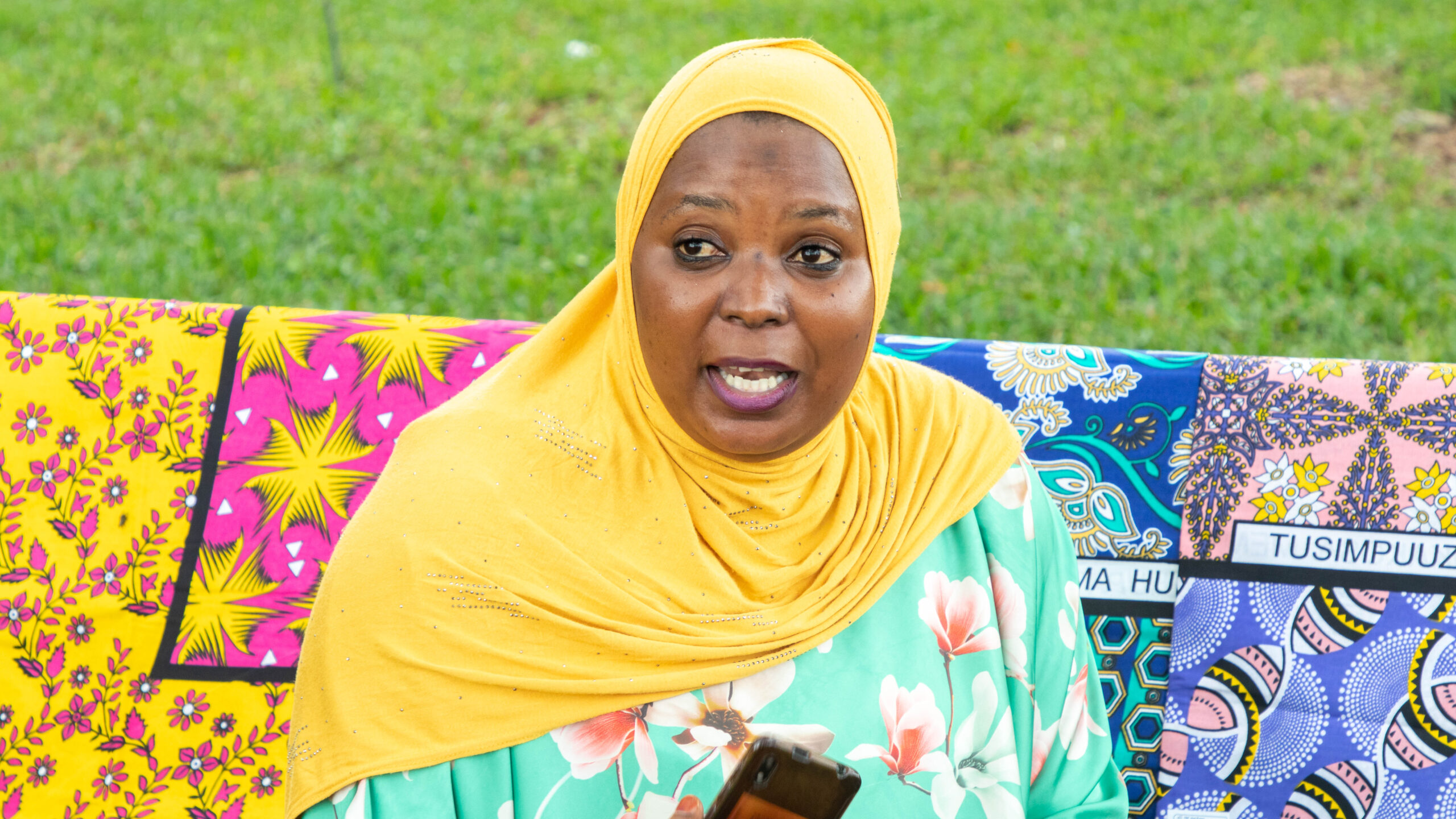When Ms. Bintkhamis Mohammed divorced her husband as a result of gender-based violence all seemed to be lost as the only business she depended on to fend for two children was also affected by the breakout of the COVID-19 pandemic thus leaving her and the children devastated.
“During the breakout of COVID-19 in Kenya, there were some rumours that mitumba clothes were among those items spreading the virus. Mark you at that time I had a bale of clothes for kids and it was difficult for people to buy out of fear that the clothes were spreading coronavirus, she said.
However, Ms. Mohammed says things took a different shape when she was trained and on-boarded as a beneficiary of a low-interest loan from Jasiri Fund.
Jasiri Fund is a non-collateral loan that seeks to support women affected by sexual and gender-based violence (SGBV) in Kenya during the COVID-19 pandemic. The features of the loan include a minimum and maximum borrowing of Ksh. 30000 to 500,000, the beneficiary of the loan has a one-month grace period before they start servicing at a fixed interest rate of 8.38%
Ms. Mohammed was able to get a loan of Ksh. 30,000 which she used in reviving her business in the sale of lessos and bedsheets. The mother of two said she was given a period of nine months to service her loan, however, due to her already existing customers, she was able to service the loan within six months. This made her qualify for another loan where she took Ksh. 39,000 which she is in the process of repaying.
Apart from venturing into a new business, she also opted to digitize her business by taking pictures of her stock and sharing them on digital platforms such as WhatsApp or Facebook.
“I do an online business where I take pictures of my products and share them on WhatsApp Groups as well Facebook where my customers are able to see them and make orders,” she said.
She says online sales help in cutting running costs: “I saw the responsibility that I have – I have two kids and if I decide to rent a shop which is Ksh. 10,000 per month and there are also licenses to be paid that would be costly. So, I told myself my business will be done online to cut the cost, said Mohammed.
The mother of two has also insured her business against disasters. A move that she says should be emulated by other businesswomen to avoid witnessing the same situation as witnessed during COVID -19 pandemic or any other disaster such as fire.
She looks forward to getting her third loan which she intends to build a rental house on a plot she had bought earlier. “Due to the proximity of the land to Kwale KMTC, I intend to use the money to build bedsitters which can be rented by students who usually seek a place to stay from their second year at college.”
Despite being a survivor of GBV and her business being affected by the effects of COVID-19, Ms. Mohammed now wears a smile.
With support from Mastercard Foundation funding to the consortium of CREAW, GROOTS Kenya, and CCGD women such as Ms. Bintkhamis Mohammed can access loans from Jasiri Fund. CCGD is currently implementing the program in Kwale, Kajiado and Busia Counties. As of December 2022, a total of 285 women had received loans worth Ksh. 16, 412, 575.
By Maurice Goga


